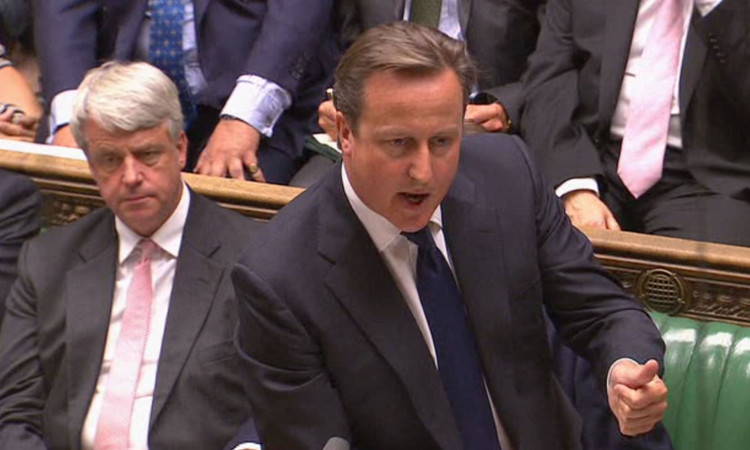David Cameron has ruled out UK involvement in military action against Syria after his authority and international standing were dealt a severe blow by defeat on the issue in the Commons.
In what is thought to be an unprecedented parliamentary reverse over British military action, Tory rebels joined with Labour to inflict a humiliating defeat on the Prime Minister.
A motion backing the use of force “if necessary” in response to last week’s deadly chemical weapons attack was rejected by 272 votes to 285, majority 13.
Mr Cameron had already been forced to water down his stance – accepting Labour demands that direct British involvement would require a second vote following an investigation by United Nations weapons inspectors.
But the concession was not enough to win over enough coalition MPs, conscious that public opinion is heavily against any intervention and wary of the decade-long controversy over the Iraq war.
After the shock result and to shouts of “resign” from the Labour benches, Mr Cameron told MPs: “I strongly believe in the need for a tough response to the use of chemical weapons. But I also believe in respecting the will of this House of Commons.
“It is clear to me that the British Parliament, reflecting the views of the British people, does not want to see British military action. I get that and the Government will act accordingly.”
The result will not only dismay allies in Washington and elsewhere seeking a wide coalition of support for air strikes to punish the regime but also raise serious questions about Mr Cameron’s leadership.
It is also a blow for Liberal Democrat Deputy Prime Minister Nick Clegg, who firmly backed the Government’s position.
Mr Cameron had told MPs there could be no “100% certainty” about who committed the attack but the evidence convinced him “beyond doubt” the regime was responsible.
He said the biggest danger of escalation in the Syrian civil war, which has so far cost more than 100,000 lives, was for the world to “stand back and do nothing”, encouraging more such attacks.
But Mr Miliband, while not ruling out supporting military action, said he required “compelling evidence” that the regime was responsible before backing even the principle of a military response.
Labour’s stance provoked deep anger in the Government, with Defence Secretary Philip Hammond accusing Mr Miliband of giving “succour” to the regime.
The Opposition had already lodged a complaint about the Prime Minister’s top spin doctor for making a similar remark.
But Mr Hammond backed the assessment, telling Channel 4 News: “Anything that stops us from giving a clear united view of the British Parliament tonight will give some succour to the regime.
“We deliberately structured our motion to take account of the concerns the Leader of the Opposition had expressed directly to us.
“But he has still chosen to table an amendment and ensure that we don’t have a clear, united and unified opinion from the British Parliament.”
The spectre of the decision by Tony Blair to take Britain into war with Iraq a decade ago on the basis of intelligence about weapons of mass destruction that later proved false hung over the debate.
Mr Hammond said he recognised that public and parliamentary opinion had been “poisoned by the experience of the Iraq dodgy dossier”.
The most recent opinion poll showed public support for air strikes falling to just 22%.
The permanent members of the UN Security Council – the UK, America, France, Russia and China – met for an hour this evening to discuss the situation.
The UK has tabled a draft resolution seeking approval for military action.
But Moscow, a key ally of Assad, is opposed to any military intervention and with China has vetoed all previous attempts to secure resolutions critical of the regime and imposing sanctions.
The team of weapons inspectors is expected to complete its work tomorrow and leave the Syrian capital the following morning and deliver its initial findings to secretary general Ban Ki-moon.
Mr Ban has urged the international community to “give peace a chance” by awaiting the results – although the team’s remit extends only to whether banned weapons were used not who used them.
The Syrian leader said the country would “defend itself against any aggression”.
